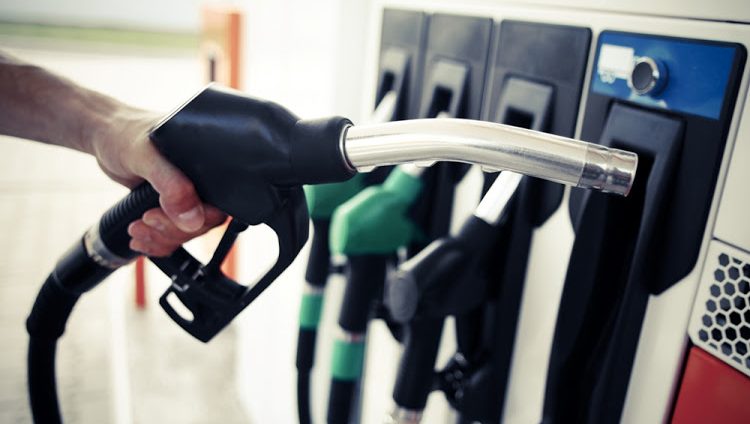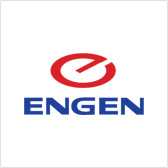
- By: News
- 0 comment
- South Africa burns a lot of petrol – and selling it is an often lucrative business.
- But be warned, it is not for everyone, there’s plenty of red tape, and it isn’t cheap.
- The cheapest stations cost around R1 million, but if you want a popular location and all the trimmings, you can pay 20 times this.
- Here’s how to open your own independent petrol station, or buy an existing petrol franchise, and the advantages and pitfalls of each.
- For more stories go to www.businessinsider.co.za.
South Africa pumps more petrol than any other country on the continent – some 11.7 billion litres per year, according to the Department of Energy. Diesel isn’t far behind. Although traffic levels dropped off significantly during 2020’s Covid-19 lockdowns, and may take some time to recover, petrol stations are still likely to generate profits for a while to come yet.
If this, along with South Africa’s high petrol price, sounds like money to your ears, keep in mind that the link between the amount of fuel pumped, and the profitability of a petrol station, is not always that direct. The profits from these billions of litres of fuel don’t all end up in the pockets of petrol station owners. Filling stations in South Africa are tightly regulated, and more than 60% of what consumers pay goes to levies, taxes, and margins.
Factors like labour costs, fluctuating oil prices, port delays, the power of large oil companies, and the strength of the rand, can all impact on station owner profit margins, and increase unpredictability.
It’s also a business that has no downtime; most filling station franchises must remain open 24 hours a day, every day of the year.
Couple that with the need for huge capital outlay and large amounts of working capital, and you might actually be happier to continue paying someone else to handle the hassle of filling up your vehicle.
Still, given our dependence on petrol and diesel, the fuel retail industry is surprisingly resilient. The money is also good for those who are established. There are about 5,000 service stations in South Africa, and according to the Department of Energy, and these have an annual turnover of approximately R220 billion.
Fuel stations are also starting to diversify, which means there’s potential to add other income streams to your business. Although fuel sales still make up the majority of the profits at filling stations in South Africa (according to Absa, between 80% and 90% of profits), the additional income from forecourt businesses like convenience stores, coffee shops and restaurants, can be a nice supplement.
In South Africa you can either start an independent filling station, or buy an existing franchise, each of which has its own pros and cons. And if you’re buying an existing station, either independently or privately, the magic number that influences the price is usually on how much fuel the station pumps per month on average.
Opening an independent fuel station
The independent route allows for greater freedom, and potentially greater profit, without the restrictions of a parent company. In theory, if you know what you’re doing and have enough cash, you can establish a filling station with your own brand.
You can’t open a petrol station anywhere you like, though. New sites require approval from government, and you’ll need to jump through several legislative hoops as stipulated in the daunting Petroleum Products Act regarding petroleum products site and retail licences.
As part of the process of opening an independent petrol station, you’ll need to obtain environmental authorisation and land use rights. Once you have these approved you apply for your operating licenses. Not getting the approval right could be a real problem.
If you’re familiar with the petrol industry or have run a station before and you want to go independent, your best bet is to purchase an existing filling station that has all of the red tape already sorted. This may enable you to bypass some aspects of the Petroleum Products Act that governs locations of new stations.
Opening a petrol franchise via Engen, Shell, or other oil companies
Like other types of franchising, it may be a far safer option for first-time owners to buy an existing franchise from one of the major oil companies. This may come with some restrictions, such as store layouts, product pricing, and branding, as well as some additional costs like franchise and advertising fees, but you’ll be tapping into the expertise, workflow and brand of established players.
Many franchise petrol stations now also have affiliations with loyalty schemes like those from Clicks and Discovery, which can help drive customers to use these locations over competitors.
The likes of Engen, Shell, Total, Caltex, BP, or Sasol are open to new franchise locations, but with licensing and locations hard to come by, your best option may be to purchase an existing franchise operation. Even these are rare. Most leading petrol station brands appear to advertise just one or two on their websites every few months.
The cost of these franchises vary according to the location, fuel pumped, and other add-ons like convenience stores.
Engen currently has just two service station franchise opportunities in South Africa.
The first, in the North West, pumps an average of 135,512 litres of petrol, and 4,096 litres of diesel, per month, and has no convenience store. By most counts it’s a small station, and Engen is asking for just under R2.5 million for it. Of this, R700,000 must be in unencumbered cash, and buyers must have a working capital of R800,000.
By way of comparison, Engen is also selling a larger petrol station franchise in Mpumalanga, that has a convenience store attached. This franchise location pumps 193,854 litres of petrol and 75,364 litres of diesel per month, and turns over R615,000 at its convenience store. The group is asking for R6.8 million, with a working capital of R1.5 million, for this location.
Larger stations in the network can go for a lot more. Those that pump in excess of 200,000 litres and come with a forecourt Quickshop have previously fetched R4 million.
Engen requires more than cash to be successful. Applicants will complete a psychometric assessment at their own cost to ensure a good fit with the business.
Competitor Sasol has fewer locations, but its new, fully-equipped stations are equally expensive. The group was selling an existing filling station last year that cost in excess of R10 million. It was based in Gauteng, with convenience store a monthly pumped fuel average of 315,000 litres.
By way of comparison, a smaller Sasol petrol station in Port Elizabeth, that sees an average of 203,300 litres per month, was recently on the market for just under R6 million.
New and existing franchises, bought directly through the brands they’re associated with, are hard to come by. But if you have your heart set on a petrol station and there are no opportunities directly through the brands there are still several private purchasing opportunities available.
Profitable and established petrol stations around the country, like one recently listed online that’s located along the Garden Route, can easily fetch upwards of R22 million if bought through a broker. The above example, available only as a cash purchase, turns over a net monthly profit of R227,854 according to an online listing, which means that it’ll take about a decade of pretty hard work before you realise a profit.
Even if you have the money to stump up for a petrol station bought directly from the franchisor, or via a private sale, you’ll likely need to undergo a fairly extensive vetting process. Most leading brands require applicants pass exams and submit to comprehensive questioning before they can proceed to the actual building or handover phase.
If you pass the exams, and possibly a psychometric assessment, and have shelled out the millions needed to cover the required amounts of unencumbered cash and working capital, you can then turn your attention towards the thankless task of pumping other peoples’ fuel.
SOURCE:
https://www.businessinsider.co.za/this-is-how-much-it-will-cost-you-to-open-your-own-petrol-station-2020-11-2



